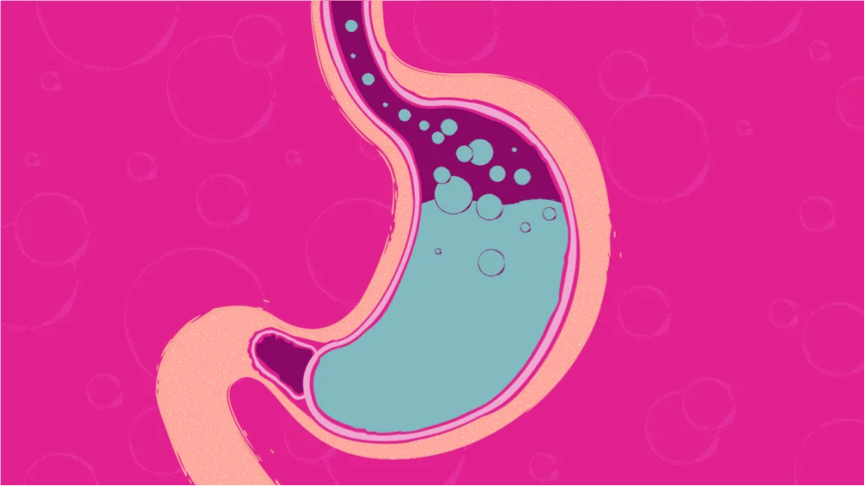
I help many of my clients to tackle their acid reflux which is a common and distressing complaint. It is estimated that 20% of Europe’s population suffer with this condition.
Acid reflux symptoms
Acid reflux occurs when the muscle at the top of the stomach weakened and acid from the stomach leaks into the oesophagus. There are a variety of symptoms which may be related to this common problem.
| Common | Less common |
| Heartburn | Voice changes |
| Chest pain | Hoarseness |
| Dry cough | Sore throat |
| Nausea | Difficulty breathing – asthma symptoms |
| Thick and bubbly saliva | Teeth damage |
| Pain in the upper part of the abdomen | Damage to mucous membranes in the mouth |
| Lump in throat |
PPI medication
Proton pump inhibitor medication such as omeprazole and iansoprazole reduce the production of stomach acid. They work by blocking an enzyme known as the ‘proton pump’ which is key for acid production, hence their name ‘proton pump inhibitors’ or PPI’s. They can reduce the acidity of the stomach by up to 90% and this can help to reduce the risk of stomach acid causing damage to the delicate windpipe (oesophagus)and reduce uncomfortable symptoms such as reflux, heart burn and indigestion.
PPIs are commonly used for conditions like gastroesophageal reflux disease (GERD), reflux and to reduce ulcer irritation. In 2019 over 60 million doses of the two most common PPI drugs were prescribed.
Problems with medication and low levels of stomach acid
Acid suppression medications are generally intended for short term use to help with immediate symptom relief which is often essential. Slowing down digestion however can cause undesirable side effects. People sometimes feel sick or become constipated whilst others may experience diarrhoea, abdominal pain and gassy bloating. The gut microbiome which is crucial for health can become very unbalanced, known as dysbiosis, and this can lead to small intestine bacterial overgrowth (SIBO). This is when the bacteria from the large intestine (colon) overgrow into the small intestine.
There is also a risk of bacteria migrating elsewhere in the body, such as the lungs, increasing the risk for pneumonia. The negative effects on digestion have also raised concern about reduced nutrient absorption and even an increased risk of fracture.
The solution
Simple diet and lifestyle changes may be all that is required. These might include losing weight, avoiding eating just before sleep or avoiding key food triggers such as alcohol, caffeine, spices and chocolate. Sometimes we need to work on improving the digestive capacity and healing the gut first, to really resolve matters. There are also some key supplements that can coat the interior of the GI tract to protect and nourish the cellular lining. It just depends how severe the problem is.
My approach
My approach works on the root cause of the problem and is tried and tested to address both symptoms and long-term solutions. To discuss your unique health concerns please get in touch for a free chat or book a call with me via my website.
References
Eom, C-S. et al. (2011) Use of acid-suppressive drugs and risk of pneumonia: a systematic review and meta-anlaysis. Canadian Medical Association Journal; 183(3) pp.310-319. doi: 10.1503/cmaj.092129
Cai, D., Feng, W. and Jiang, Q. (2015) Acid-suppressive medications and risk of fracture: an updated meta-analysis. International Journal of Clinical Experimental Medicine; 8(6); pp. 8893-8904. PMID: 26309543




